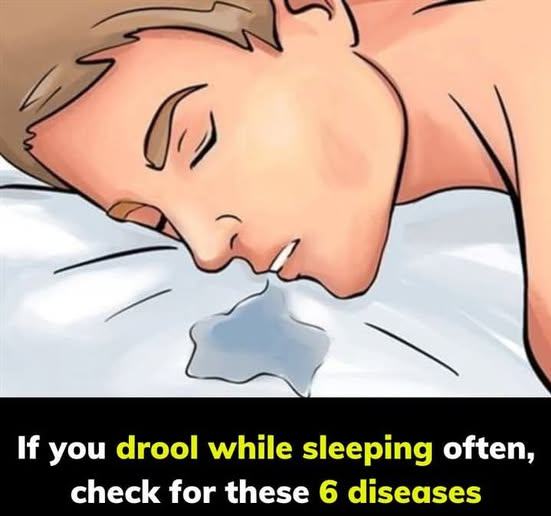✔ Why It Happens: Stuffy nose or blocked sinuses force you to breathe through your mouth, leading to excessive saliva leakage.
✔ Common Triggers: Colds, flu, allergies, or sinus infections.
✔ Fix It:
Use a humidifier to keep airways clear.
Try saline nasal spray before bed.
Treat allergies with antihistamines or natural remedies.
✅ Keeping nasal passages clear can help prevent mouth breathing & drooling!
3️⃣ Acid Reflux (GERD) 🔥
✔ Why It Happens: Gastroesophageal reflux disease (GERD) can trigger excessive saliva production as your body tries to neutralize stomach acid.
✔ Symptoms: Heartburn, throat irritation, and a sour taste in your mouth at night.
✔ Fix It:
Avoid spicy, fatty, or acidic foods before bed.
Sleep with your head elevated.
Try antacids or proton pump inhibitors (consult a doctor).
✅ Treating GERD can reduce excess saliva & improve sleep quality!
4️⃣ Neurological Disorders 🧠
✔ Why It Happens: Certain conditions affect muscle control in the mouth and throat, leading to difficulty swallowing (dysphagia).
✔ Common Conditions:
Parkinson’s disease
Stroke survivors
ALS (Amyotrophic Lateral Sclerosis)
Cerebral Palsy
✔ Fix It:
Speech therapy can help improve swallowing reflexes.
Medications like anticholinergics may reduce saliva production.
✅ If drooling is severe and persistent, consult a doctor for neurological screening!
5️⃣ Sleep Apnea & Snoring 😴
✔ Why It Happens: Obstructive Sleep Apnea (OSA) causes airway blockages, forcing mouth breathing and leading to excessive saliva loss.
✔ Symptoms: Loud snoring, gasping for air, daytime fatigue.
✔ Fix It:
Use a CPAP machine if diagnosed with sleep apnea.
Lose weight if overweight (reduces throat obstruction).
Avoid alcohol or sedatives before bed.
✅ Proper sleep apnea treatment can drastically reduce drooling!
6️⃣ Medication Side Effects 💊
continued on next page
ADVERTISEMENT

